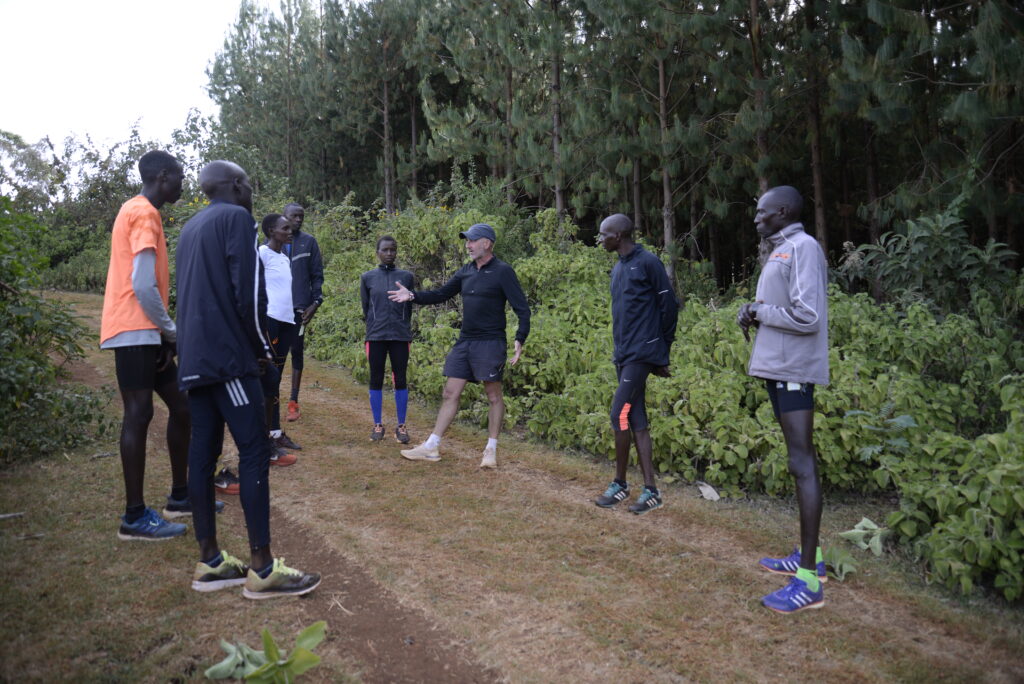In my previous post, we looked at the art of coaching. I dropped out a definition which examined the craft (science) and technique (skill/experience). I wanted to follow-up with a deconstruction of the greatest workout of all-time (Canova’s, Dull Roots Workout) but I feel that it’s important to work our way into that post, with this bridging post…

Both craft and technique are necessary for the art of coaching. Craft (science)—the starting point—shackles most coaches to the ankles of mediocrity. If, however, a coach recognises the antediluvian hindrances of science, they then open themselves to the multifarious advantages of technique—they open the door to the freedom of enlightenment.
We all begin at the beginning. Whether it’s writing, running, coaching, football, boxing, or even dressmaking, we have to start somewhere.
Like headless chickens, most of us head off with our super-fuelled passion down blind alleys. Runners zip out the door, dressed to the nines in all their new running kit (thinking they look cool—nobody looks cool in running gear; trust me, all of you look like muppets), tooled-up with the latest Garmin (beeping like a reversing vehicle), specially fitted shoes (prescribed by a plook-ridden teen), and a pair of fancy shades.
We spend years running too fast, too far, getting the balance wrong, lacking direction, and soon enough, we’re plagued with niggles and injuries. Frustration funnels us towards the plethora of online articles (like this drivel) and we metamorphose into running polymaths. Now we know all the plans: like Wombles, we follow the Orinoco plans for beginners, intermediate, and advanced—we buy the books, we chat online about the nuances of the plan(s), and we improve; then we hit the brick wall at the end of the alley. Sounds familiar, doesn’t it?
It’s the same with coaching. We get all the tools and dive in. We think we’re doing great and then, crack—we haven’t got a clue: science is wrong. What next? Read everything online by other coaches, steal their workouts and pass them off as our own. Yes, this works for a while and we have limited success, but then, like the runner, we hit the brick wall at the end of the alley. Imitation isn’t art. You need to find your own voice (we’ll come back to this—this is the key to unlocking the shackles).
Alternatively, the club coach turns up at the track and hammers the hell out of all the teenagers. This leads to glory. Teenagers win championships. They make the local newspapers. But nobody is around to deal with the lifelong scars from the stress fractures (brought on by coaches/over eager parents, pushing growing/developing kids), nobody’s around to deal with the loneliness and pain of eating disorders (brought on by the same coaches and parents—living vicariously through the/their kids), nobody’s there to help with the lifelong sense of underachievement, failure, and unfulfilled dreams.
Hammering kids in this way is well-intentioned child abuse. End of.
Next time you’re at an athletics meeting, take off your fancy shades and spend time studying the kids at the meeting—the penny should drop. (Hint/clue: it’s got crap all to do with peer group pressure and everything to do with parental responsibility and coaches—kids need space to grow into their ultimate selves; heavy stuff, folks, ay?)
The great hopes (the championship winning teens) disappear and we’re left with a vacuum: hardly any athletes in their twenties—when runners should be moving into their strongest phase. We blame it on technology and social media: sure when we were kids, we were all out playing kick-the-can, football/soccer, ringing doorbells and running away, and kiss chase—variations on a theme. We trained hard and did manual jobs. We were great. This generation don’t realise the cliché—It’s all crapology. Be afraid, very afraid: the moxie millennials will have their revenge—when you’re old.
But it’s not all doom and gloom for runners and coaches.
Often, people believe things like music, writing, and painting are a gift (to a large extent, they are gifts from Zeus). But the true gift that all great artists/coaches/runners/successful people possess is their true and unique voice.
Next time, we’ll examine what I mean by ‘true and unique voice’ and this will feed into Canova’s, Dull Roots Workout…
.
Interesting post. Not sure if you have seen this but on Boards.ie Luke Coleman (KSU) has copied lots of your workouts and passing them off as his own plan
https://www.boards.ie/vbulletin/showthread.php?t=2056121735&page=29
Hi Mark, I can see how it may be construed that young Luke has pinched workouts from either myself, Renato Canova, or many of the Kenyan Coaches (the progressive nature and style of workouts), however, for many reasons his plan will fail; in fact, he won’t execute the plan. But it’s interesting to see him trying to modify our work: it shows he’s making an effort to learn. As far as the plan is concerned, I’ll examine it in a post when I’m talking about the marathon. This will help him and others. But if you keep an eye on his training, you’ll see what happens…